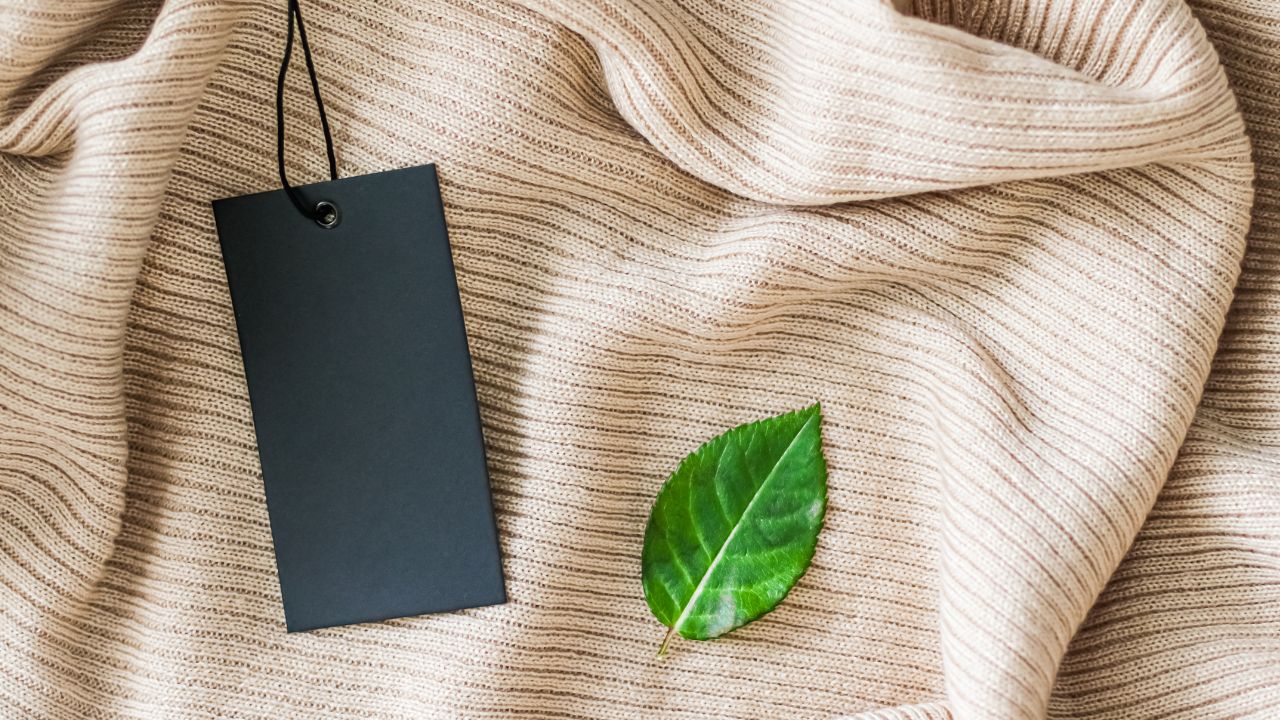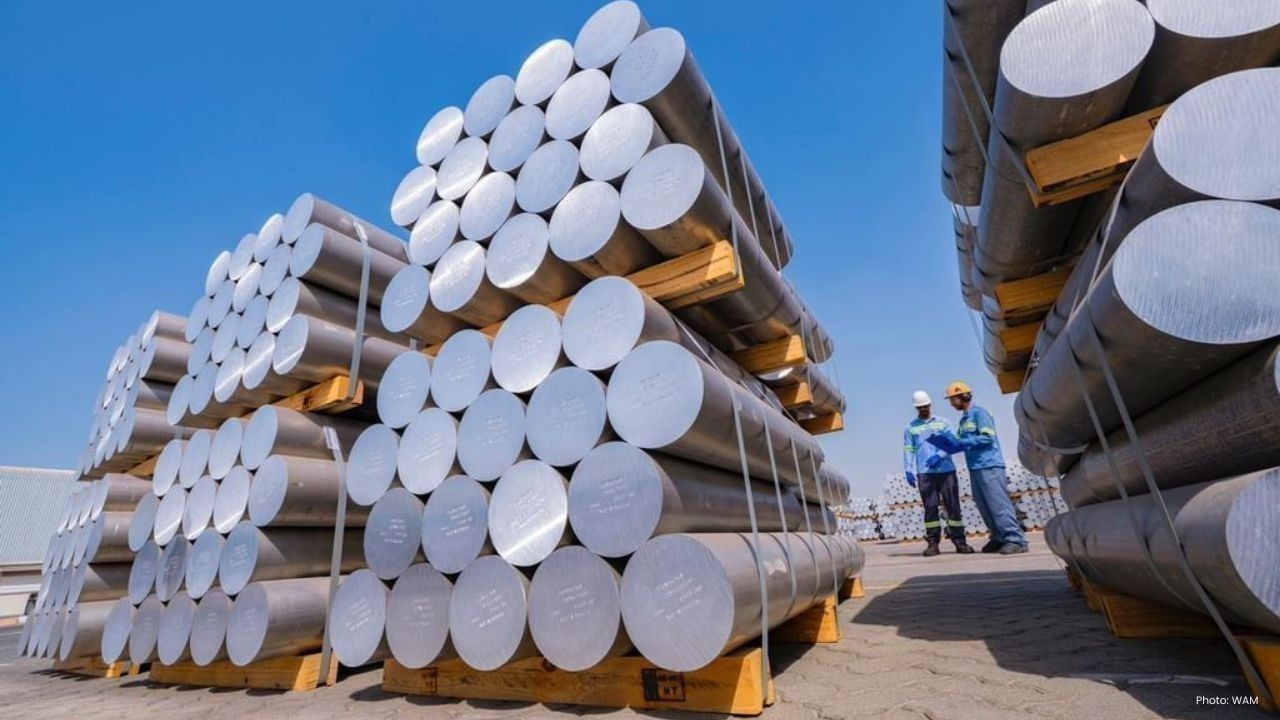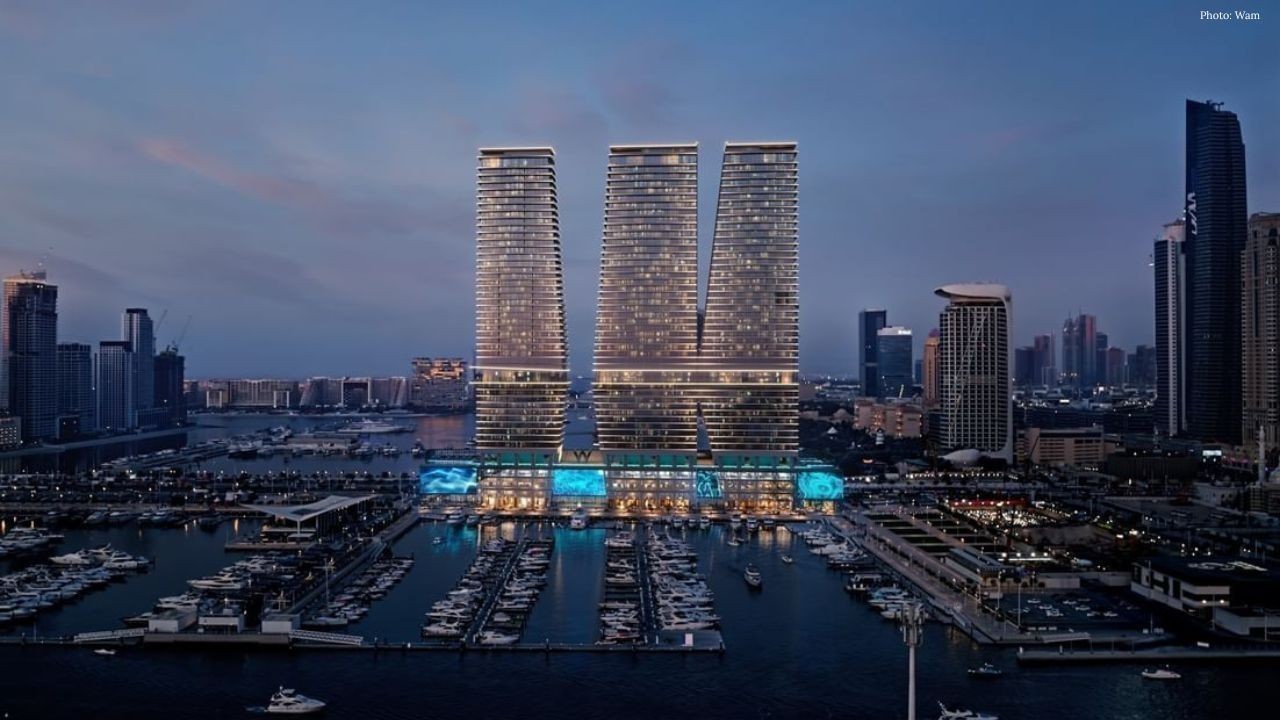
Post by : Raina Mansoor
In today's dynamic world of fashion, there's a notable and growing emphasis on sustainability. This shift in consumer awareness is steering the spotlight towards organic clothing brands that prioritize eco-conscious practices. As more people become mindful of the environmental impact of their choices, the demand for fashion that is both stylish and sustainable continues to rise.
Organic clothing brands are at the forefront of this movement, redefining what it means to be fashionable while prioritizing ethical and environmental considerations. These brands are committed to reducing their carbon footprints by employing renewable energy sources, minimizing waste through efficient production methods, and utilizing biodegradable or recycled materials in their garments.
Moreover, organic clothing brands often champion fair labor practices, ensuring that workers throughout their supply chains are treated ethically and paid fairly. By adhering to stringent environmental and social standards, these brands not only contribute to the well-being of our planet but also support communities globally.
The appeal of organic fashion extends beyond its sustainability credentials. Consumers are increasingly drawn to the quality and durability of organic textiles, which often surpass conventional fabrics in comfort and longevity. Whether it's organic cotton, hemp, bamboo, or other natural fibers, these materials offer a luxurious feel while aligning with eco-friendly principles.
In embracing organic fashion, individuals are making a statement beyond their personal style preferences—they are advocating for a more sustainable future. By supporting organic clothing brands, consumers can contribute to reducing the fashion industry's ecological footprint and promoting responsible consumption.
Looking ahead, the growth of organic clothing brands signals a positive shift towards a more sustainable fashion industry. As these brands continue to innovate and expand their offerings, they inspire broader change within the fashion sector and encourage other companies to adopt environmentally friendly practices.
Ultimately, the rise of organic clothing brands represents a collective effort towards creating a more conscious and compassionate fashion ecosystem. By making informed choices and supporting brands that prioritize sustainability, consumers can play a vital role in shaping a greener and more equitable future for fashion.
Patagonia has established itself as a trailblazer in sustainable outdoor apparel. Their dedication to using organic cotton and recycled materials distinguishes them within the industry. Each garment is meticulously crafted with a focus on durability and minimizing environmental impact, making them a preferred choice for both adventurers and conscientious consumers.
Eileen Fisher is renowned in the fashion industry for its timeless designs and unwavering dedication to sustainability. Embodying simplicity and elegance, their collections feature organic fibers such as organic cotton and linen, chosen to minimize environmental impact while ensuring comfort and style. The brand maintains strict environmental standards throughout its supply chain, underscoring its commitment to ethical practices. By prioritizing transparency and responsible sourcing, Eileen Fisher sets a high standard for sustainable fashion, inspiring consumers and industry peers alike.
People Tree stands out as a pioneer in the realm of ethical fashion, setting a high standard for fair trade practices and sustainable production. Their approach goes beyond just creating clothes; it's about forging meaningful partnerships with artisans and farmers worldwide. By choosing organic cotton and sustainable materials, they not only ensure high-quality products but also prioritize the well-being of the environment.
What makes People Tree distinctive is their commitment to empowering local communities. Through collaborative efforts, they provide fair wages and safe working conditions, empowering artisans to thrive economically. This approach not only supports livelihoods but also preserves traditional craftsmanship, celebrating cultural diversity in every piece of clothing.
Furthermore, People Tree champions transparency throughout their supply chain. They actively engage in educating consumers about the impact of their choices, fostering a deeper connection between buyers and the origins of their garments. This transparency builds trust and encourages more responsible consumer behavior, ultimately contributing to a more sustainable fashion industry.
In essence, People Tree embodies a holistic vision of fashion that intertwines social responsibility with style. Their efforts resonate deeply with socially conscious consumers who seek to make a positive impact through their purchasing decisions, ensuring that fashion can be both beautiful and ethical.
Thought, previously recognized as Braintree Clothing, stands out in the fashion industry for its steadfast dedication to sustainability. What sets Thought apart is their unwavering commitment to using natural and organic materials such as bamboo and hemp. These choices not only reflect their environmental consciousness but also contribute to creating clothing that is gentle on both skin and planet.
Beyond their material choices, Thought excels in seamlessly blending comfort with ethical manufacturing practices. Their designs are not just fashionable but also embody a thoughtful approach to how clothes should be made—respecting the environment and the people involved in every step of production.
For consumers who prioritize both style and sustainability, Thought offers an appealing range of wardrobe choices. Each piece not only looks good but also carries the assurance of being responsibly sourced and manufactured. This ethos makes Thought a preferred brand among those who seek to make conscientious choices in their fashion consumption, contributing to a more sustainable future without compromising on quality or aesthetic appeal.
Pact offers a distinctive lineup of organic clothing essentials crafted from Fair Trade Certified cotton. What sets them apart is their commitment to affordability without compromising on sustainability. Whether you're looking for everyday staples like tees and socks or performance-driven activewear, Pact ensures each piece is not only comfortable but also produced with minimal environmental impact in mind.
Their dedication goes beyond just making clothes; it extends to promoting ethical labor practices throughout their supply chain. By choosing Pact, consumers support a brand that values transparency and strives to create a positive social impact. Whether you're lounging at home or hitting the gym, Pact's offerings provide peace of mind knowing that your wardrobe choices align with responsible and thoughtful manufacturing practices.
Choosing organic clothing brands offers several compelling reasons beyond just fashion. Firstly, these brands adhere to strict standards that prioritize environmental sustainability. Organic farming methods, unlike conventional practices, avoid synthetic pesticides and fertilizers that can harm soil quality and biodiversity. By opting for organic cotton or other fibers, consumers contribute to healthier soil ecosystems and reduce their ecological footprint.
Moreover, organic clothing promotes better health for both consumers and farmers. Conventional cotton farming often involves extensive use of pesticides, which can have adverse effects on farmers' health and nearby communities. Organic farming, on the other hand, reduces exposure to these chemicals, making it a safer option for agricultural workers and the environment.
Additionally, organic clothing brands typically prioritize water conservation. Conventional cotton farming is notorious for its high water consumption, contributing to water scarcity issues in many regions. Organic farming practices, such as crop rotation and mulching, help conserve water resources by maintaining soil health and reducing irrigation needs.
Furthermore, supporting organic clothing brands aligns with ethical consumerism. These brands often uphold fair labor practices and ensure better working conditions for garment workers. By choosing organic, consumers can contribute to a more equitable and socially responsible fashion industry.
In essence, opting for organic clothing brands goes beyond personal style preferences. It's a conscientious choice that supports sustainable agriculture, promotes healthier living environments, and fosters a more ethical approach to fashion consumption. By making informed decisions about the products we buy, we can collectively contribute to a more sustainable and equitable future.
The future of fashion is increasingly being shaped by the rise of sustainable practices. Organic clothing brands are at the forefront of this movement, pioneering a shift towards more ethical and environmentally friendly fashion choices. Unlike conventional fashion, which often relies on mass production and synthetic materials, these brands prioritize ethical sourcing of raw materials. This means they ensure that their materials are grown or sourced in ways that minimize harm to the environment and support fair labor practices.
Moreover, transparency in manufacturing is a key principle for these brands. They strive to provide consumers with clear information about where and how their garments are made. This transparency not only builds trust but also encourages accountability throughout the supply chain.
In terms of materials, organic clothing brands favor eco-friendly fabrics such as organic cotton, hemp, bamboo, and recycled fibers. These materials are not only better for the environment due to reduced pesticide use and lower water consumption but also often result in higher quality and longer-lasting garments.
The impact of these changes extends beyond the clothes themselves. Consumers are becoming more aware of the social and environmental impact of their fashion choices. By supporting organic clothing brands, they are endorsing a more sustainable industry model and contributing to a cleaner, fairer future.
The article explores the growing prominence of organic clothing brands in the fashion industry amidst increasing consumer demand for sustainability. Organic brands prioritize ethical practices such as sustainable sourcing, transparent manufacturing, and the use of eco-friendly materials like organic cotton and recycled fibers. These initiatives not only minimize environmental impact but also promote fair labor practices globally. Brands like Patagonia, Eileen Fisher, People Tree, Thought, and Pact exemplify these principles, offering stylish and durable garments that resonate with socially conscious consumers. Choosing organic clothing supports a shift towards a more sustainable fashion ecosystem, encouraging responsible consumption and fostering a cleaner, fairer future.
Dxb News Network provides this article for informational purposes only. The views and opinions expressed herein are those of the author and do not necessarily reflect the official policy or position of Dxb News Network. Readers are encouraged to conduct further research and consult professional advice as needed before making any decisions based on the information provided in this article.

Hong Kong Unveils 2026-27 Budget Focused on Innovation and Growth
Financial Secretary Paul Chan unveils 2026-27 Budget, highlighting AI, industrial innovation, financ

Ljubljana Centre Unveils Slovenia’s Largest Indoor LED Screen
Ljubljana Exhibition & Convention Centre upgrades Marmorna Hall with a 40 m² European-made LED wall,

Abu Dhabi Launches Tesla Advanced Self-Driving Trials
Tesla’s supervised self-driving tests begin in Abu Dhabi, under safety oversight, marking the emirat

Dubai Aerospace Enterprise to Buy Macquarie AirFinance
Dubai Aerospace Enterprise will acquire Macquarie AirFinance for $7 billion, expanding its fleet to

EGA Reports Record 2025 Sales, Strong Profit Growth
Emirates Global Aluminium posts record 2025 sales, AED4.93bn profit excluding GAC, strong EBITDA, ma

South Africa vs West Indies T20 World Cup 2026 Match
South Africa and West Indies face off in a crucial ICC T20 World Cup 2026 Super 8 match. Both teams

Dubai Attracts 64 MNCs, 309 SMEs in 2025
Dubai International Chamber attracted 64 multinational firms and 309 SMEs in 2025, with Asia leading

Bank of Baroda Faces Abu Dhabi Legal Battle over NMC Collapse
Bank of Baroda’s involvement in Abu Dhabi litigation tied to the NMC Healthcare collapse raises repu

Top Museum Openings of 2026 Set to Transform Global Tourism
From Los Angeles to Abu Dhabi and Brussels, 2026 brings major museum launches—Lucas Museum, Guggenhe

UAE Tour Highlights UAE’s Strength in Hosting Global Sports Events
Abu Dhabi Sports Council says the successful UAE Tour reflects the UAE’s leading role in hosting maj

EU Seeks Clarity from US After Supreme Court IEEPA Ruling
European Commission urges full transparency from the US on steps after Supreme Court ruling, emphasi

SpaceX Launches 53 New Satellites for Expanding Starlink Network
SpaceX launches 53 Starlink satellites in two Falcon 9 missions, breaking reuse records and expandin

RTA Awards Contract for Phase II of Hessa Street Upgrade in Dubai
Phase II of Hessa Street Development to add bridges, tunnel, and upgraded intersections, doubling ca

UAE Gold Prices Today, Monday 16 February 2026: Dubai & Abu Dhabi Updated Rates
Gold prices in UAE on 16 Feb 2026 updated: 24K around AED 599.75/gm, 22K AED 555.25/gm, and 18K AED

Over 25 Ahmedabad Schools Receive Bomb Threat Email, Authorities Investigate
More than 25 schools in Ahmedabad evacuated after bomb threat emails mentioning Khalistan. Authoriti